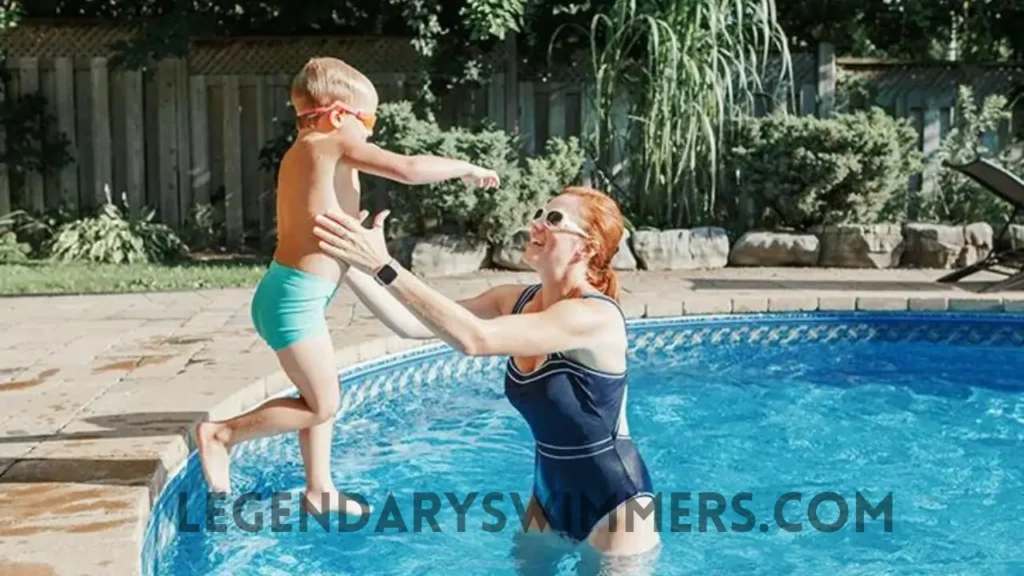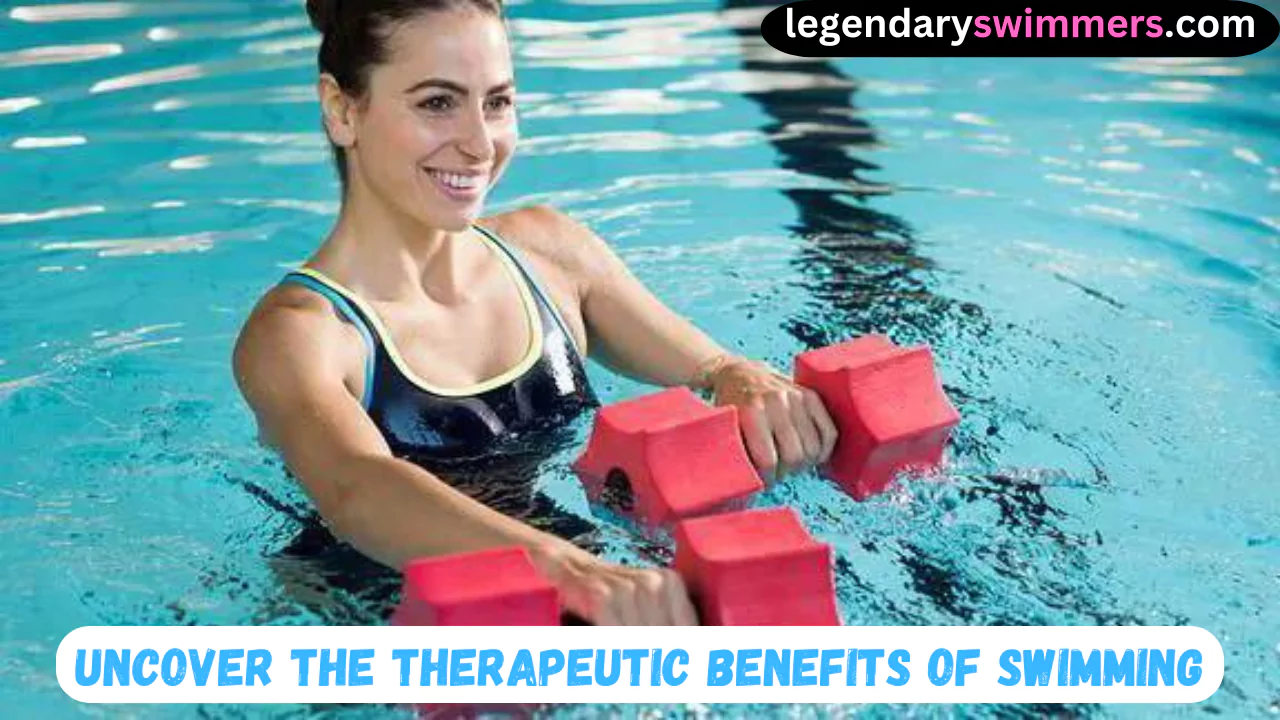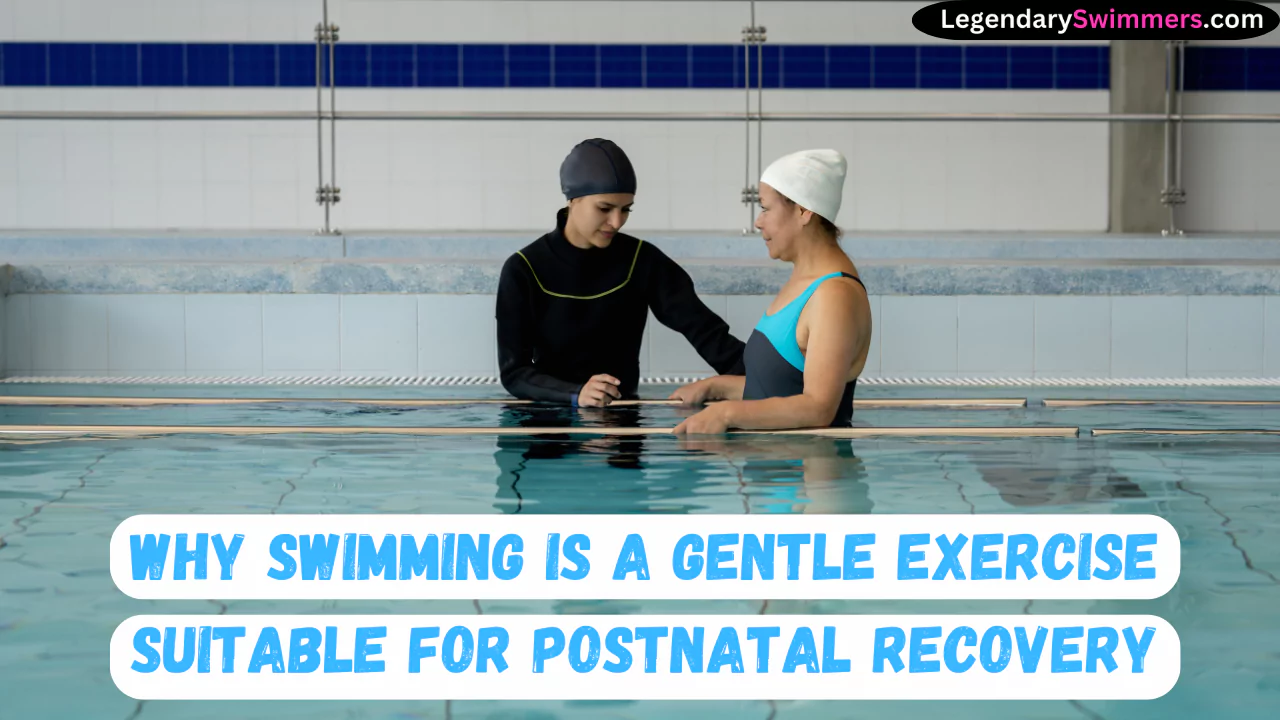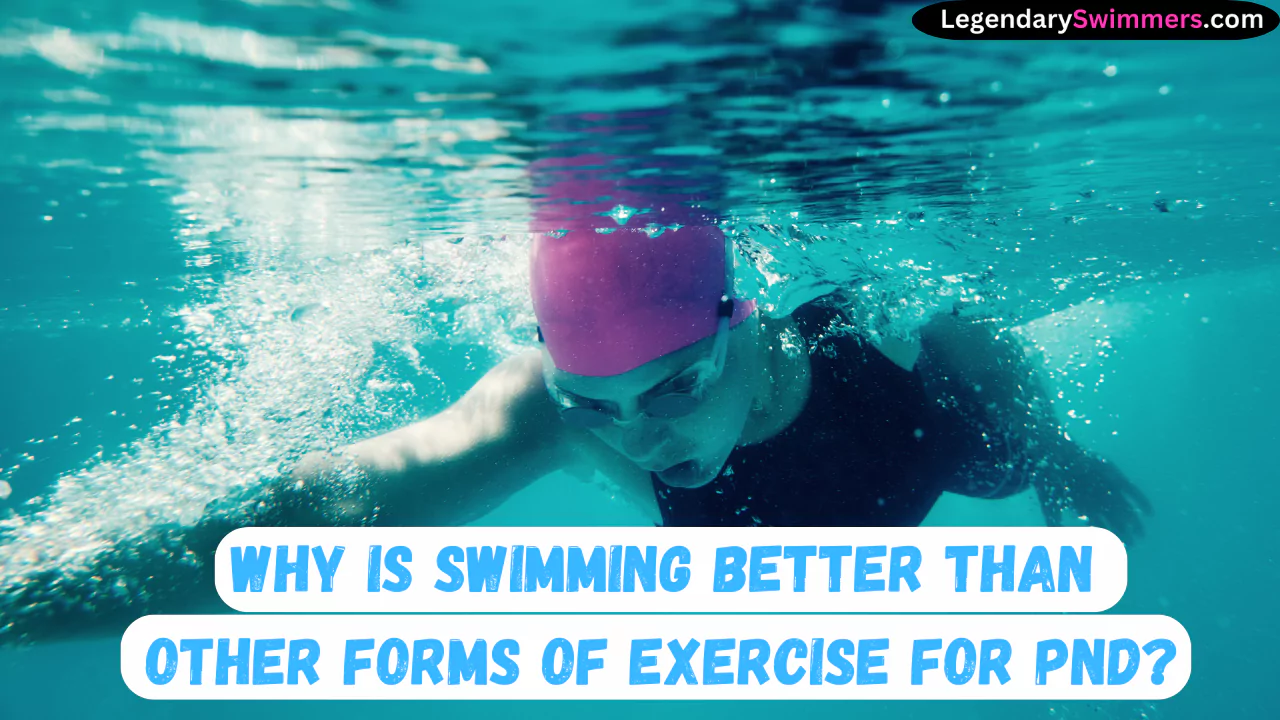
Why Swimming is Best For Moms Experiencing PND- 2024
- Updated:
Postnatal depression (PND) is a pervasive mental health condition affecting many women in the postpartum period. Characterized by persistent sadness, overwhelming anxiety, and debilitating fatigue, PND extends far beyond the transient “baby blues.” Unlike the temporary mood fluctuations experienced by most new mothers, PND can endure for months or even years, significantly impairing a woman’s ability to care for herself and her baby.
The World Health Organization (WHO) underscores the gravity of this issue, reporting that approximately 10-15% of women globally experience postnatal depression. This statistic highlights the urgent need for increased awareness, understanding, and support for affected mothers.
Introduction to Swimming as a Therapeutic Activity

Recognizing the importance of physical activity in managing depression, healthcare professionals often recommend exercise as part of a comprehensive treatment plan. Among various exercise options, swimming stands out as an exceptional choice for new mothers due to its unique combination of physical and mental health benefits.
The buoyancy of water provides a sense of weightlessness, reducing joint stress and making it a gentle yet effective workout. Swimming engages multiple muscle groups, offering a full-body exercise without the high-impact strain associated with land-based activities.
Numerous studies have shown the benefits of physical activity, including swimming, in alleviating symptoms of depression. Swimming, in particular, offers a low-impact, full-body workout that is gentle on the joints, making it ideal for postnatal recovery. The immersive experience of water can also promote mental relaxation and stress reduction, which are crucial for managing PND.
Understanding Postnatal Depression
Postnatal depression is a type of depression that occurs after childbirth. It is characterized by a range of symptoms, including persistent sadness, fatigue, changes in sleep patterns, loss of interest in activities, and difficulty bonding with the baby. Unlike the “baby blues,” which are temporary and affect up to 80% of new mothers, PND is more severe and requires medical attention.
Common Causes of Postnatal Depression
Several factors contribute to the development of postnatal depression, including hormonal changes, the stress of caring for a newborn, lack of sleep, and a history of depression or mental illness. Other risk factors include lack of support, relationship difficulties, and financial stress.
The Importance of Physical and Mental Health During the Postnatal Period
Maintaining both physical and mental health during the postnatal period is essential for recovery. Incorporating regular exercise, a nutritious diet, sufficient sleep, and mental health assistance can greatly enhance a mother’s overall health and lower her risk of developing a protracted depressive condition.
Why Swimming is an Ideal Activity for Moms with PND
Swimming offers a unique and effective approach to combating the challenges of postnatal depression. Harnessing the power of water provides a multi-faceted solution to alleviate symptoms of depression.
Endorphin Boost: Engaging in physical activity, such as swimming, stimulates the release of endorphins, often referred to as the body’s natural mood elevators. These neurotransmitters interact with opioid receptors in the brain, producing feelings of euphoria and well-being. Regular swimming can help to elevate mood and reduce feelings of sadness and hopelessness associated with PND.
Stress Reduction: The immersive environment of water creates a sense of calm and tranquility. The rhythmic movements of swimming can induce a meditative state, allowing mothers to escape the pressures of daily life and focus on the present moment. Two common symptoms of postnatal depression, stress and anxiety, are significantly reduced as a result of this mindful experience.
Improved Sleep: Sleep disturbances are prevalent among women with PND. Regular swimming has been shown to enhance sleep quality and duration. By promoting relaxation and reducing stress, swimming can help regulate sleep patterns, leading to increased energy levels and improved mood during the day.
Physical Well-being: Beyond its mental health benefits, swimming offers a gentle yet effective way to improve physical fitness. Regular exercise can boost self-esteem and body image, factors that often decline during the postpartum period.
Why Swimming is a Gentle Exercise Suitable for Postnatal Recovery

Swimming offers a multitude of benefits for new mothers undergoing postnatal recovery. As a low-impact exercise, it spares the joints and muscles from excessive stress, a crucial consideration for women whose bodies are still healing from childbirth.
The buoyancy of water acts as a natural support system, alleviating pressure on the body and enabling mothers to engage in a full-body workout without compromising their physical well-being. This gentle yet effective exercise helps to gradually rebuild strength, improve flexibility, and enhance overall physical conditioning.
Furthermore, swimming can aid in pelvic floor muscle recovery, a common concern for postpartum women. The water’s resistance provides a supportive environment for targeted exercises that can strengthen and tone these essential muscles.
How Swimming Encourages Social Interaction and Support
Beyond its physical and mental health benefits, swimming offers a valuable platform for social connection, a crucial element in combating postnatal depression. Research has consistently shown that strong social support networks are essential for maternal well-being.
Many communities offer mom-and-baby swimming classes, providing a nurturing environment where new mothers can connect with others experiencing similar life transitions. These classes not only offer structured exercise but also create opportunities for sharing experiences, advice, and emotional support. The camaraderie fostered in these groups can be invaluable for women feeling isolated or overwhelmed.
The Physical Benefits of Swimming Postnatally
Strengthening Core Muscles
Pregnancy significantly impacts the core musculature, leading to the weakening of the abdominal and lower back muscles. Rebuilding core strength is crucial for postpartum recovery, as it supports posture, alleviates back pain, and enhances overall physical function.
Swimming emerges as an exceptional exercise for strengthening the core. The water’s resistance provides a unique challenge that engages the abdominal and back muscles in a gentle yet effective manner. As you navigate through the water, you’re essentially performing a continuous core workout, targeting muscles that are often difficult to isolate on land.
Moreover, swimming improves pelvic floor muscle tone, which is essential for pelvic health and urinary continence. Regular aquatic exercise can help restore pelvic floor strength and function, addressing common postpartum challenges.
Weight Management
Pregnancy often brings about weight gain, which is a natural and expected part of the process. However, many new mothers are eager to regain their pre-pregnancy physique. Swimming emerges as an excellent exercise for postnatal weight management due to its ability to burn calories while building muscle.
The continuous, rhythmic movements involved in swimming engage multiple muscle groups, leading to increased calorie expenditure. This calorie deficit, combined with the body’s natural calorie demands for breastfeeding, can contribute to weight loss. Simultaneously, swimming helps to build and tone muscles, enhancing body composition and promoting a healthier physique.
Enhancing Cardiovascular Health
Swimming is a cardiovascular exercise that strengthens the heart and improves circulation. For new mothers, maintaining good cardiovascular health is important not only for physical well-being but also for mental health, as regular exercise can reduce symptoms of depression and anxiety.
Why Swimming Provides a Mental Escape
The meditative nature of swimming allows mothers to focus on their movements and breathing, providing a mental escape from the stresses of daily life. This mindfulness practice can lead to greater mental clarity and a reduction in negative thoughts, which are common in postnatal depression.
How Swimming Encourages Mindfulness
Mindfulness, the practice of being fully present and engaged in the current moment, has gained significant recognition as a valuable tool for managing depression. By cultivating awareness of thoughts, feelings, and sensations without judgment, individuals can develop greater emotional resilience and well-being.
Swimming offers a unique opportunity to cultivate mindfulness. The repetitive nature of swimming, requiring focused attention on each stroke, breath, and body movement, naturally induces a meditative state. This focused engagement with the present moment can help mothers shift their attention away from ruminative thoughts and overwhelming feelings often associated with postnatal depression.
By immersing oneself in the sensory experience of swimming—the feel of the water, the sound of breathing, and the rhythm of movement—mothers can develop a deeper connection with their bodies and minds. This heightened self-awareness can contribute to a greater sense of calm and balance, fostering emotional resilience and overall well-being.
How to Start Swimming After Childbirth
For new mothers, it’s crucial to start swimming gradually. Before beginning any exercise routine, it’s recommended to consult with a healthcare professional, especially if there are complications during childbirth. Once cleared, starting with short, gentle sessions in the pool and gradually increasing the intensity and duration can help build strength and confidence.
Finding the Right Swimming Program
Finding a swimming program tailored to postnatal recovery can enhance the benefits of swimming. Many pools offer classes specifically designed for new mothers, which may include both individual swimming sessions and mom-and-baby classes. These programs provide a supportive environment and structured workouts that can help moms stay motivated.
Safety Considerations
Safety is paramount when starting a new exercise routine after childbirth. New mothers should ensure that they are physically ready to swim, stay hydrated, and avoid overexertion. If swimming with a baby, it’s essential to follow safety guidelines for infant swimming to ensure a positive and safe experience for both mother and child.
Why is Swimming Better Than Other Forms of Exercise for PND?

Swimming stands out as a superior choice for women experiencing postnatal depression when compared to other forms of exercise. Its inherent qualities offer a distinct advantage in addressing the physical and mental challenges associated with PND.
- Low Impact, High Benefit: Unlike high-impact exercises that can exacerbate joint pain or physical discomfort, swimming provides a gentle yet effective workout. The buoyancy of water supports the body, reducing stress on joints and muscles, making it ideal for postpartum recovery.
- Full-Body Workout: Swimming engages multiple muscle groups simultaneously, offering a comprehensive workout without the need for specialized equipment or complex routines. This efficiency is particularly beneficial for busy mothers with limited time.
- Mental Well-being: The immersive experience of swimming promotes relaxation and reduces stress. The rhythmic nature of the movements can induce a meditative state, helping to alleviate anxiety and improve mood.
- Social Connection: Many swimming pools offer mom-and-baby classes, providing an opportunity to connect with other new mothers and build a support network.
While other forms of exercise offer benefits, swimming’s unique combination of physical and mental advantages makes it an exceptional choice for women seeking to improve their overall health and well-being during the postpartum period.
How Often Should a New Mom Swim to See Benefits?
Consistency is key when it comes to experiencing the full benefits of swimming as a new mother. While individual circumstances vary, aiming for at least 2-3 swimming sessions per week is a good starting point. Remember, it’s not about intensity but about making swimming a regular part of your routine. Even short swims of 20-30 minutes can yield significant improvements in both physical and mental well-being.
As your fitness levels gradually increase and your body adapts to the demands of motherhood, you may find yourself increasing the duration and intensity of your swims. However, it’s essential to listen to your body and avoid overexertion. The goal is to find a sustainable swimming routine that fits into your lifestyle and supports your overall health and happiness.
Remember, every woman’s postpartum journey is unique. It’s essential to consult with your healthcare provider before starting any new exercise regimen, including swimming. They can provide personalized guidance based on your specific circumstances and recovery process.
Can Swimming Alone Help Cure Postnatal Depression?
While swimming offers significant benefits, it is not a cure for postnatal depression on its own. A holistic treatment plan for PND typically includes a combination of professional medical care, counseling, social support, and healthy lifestyle practices. Swimming can complement these interventions by providing physical exercise, stress reduction, and opportunities for social interaction.
Conclusion
Swimming is a powerful tool for mothers experiencing postnatal depression. It offers physical, mental, and emotional benefits, from strengthening the body and managing weight to boosting mood and reducing anxiety. The low-impact nature of swimming makes it ideal for postnatal recovery, and the social opportunities it provides can help build a supportive community.
Call to Action
Ready to take the plunge? Visit Legendary Swimmers to learn more about swimming programs that can support your postnatal recovery. Whether you’re looking for a mom-and-baby class or a peaceful place to swim, we’re here to help you every step of the way. Dive into better health today!
Our Recommended Products
 Speedo Unisex-Adult Swim Goggles Mirrored Vanquisher 2.0
Speedo Unisex-Adult Swim Goggles Mirrored Vanquisher 2.0
 Speedo Unisex-Adult Swim Training Ergo Ear Plugs
Speedo Unisex-Adult Swim Training Ergo Ear Plugs
 Speedo Swim Training Kickboard Adul
Speedo Swim Training Kickboard Adul
References
- World Health Organization (WHO). (2023). “Postnatal Depression: Understanding and Addressing the Issue.”
- American Psychological Association (APA). (2022). “The Mental Health Benefits of Exercise.”
- National Institutes of Health

Natasha Nicole Leyva
Hi, I’m Natasha—swimmer, coach, and aquatic fitness enthusiast. My journey began in New Zealand after a professor recommended swimming to help with a knee injury. The low-impact nature of swimming worked wonders, and it quickly became my favorite form of exercise. This passion grew into a thriving swim academy, and soon, requests for aquatic fitness classes started pouring in. After becoming certified, I realized how powerful water workouts could be for recovery and fitness. Now, I share my expertise here to help others experience the benefits of aquatic movement—whether for recovery, fitness, or fun!






